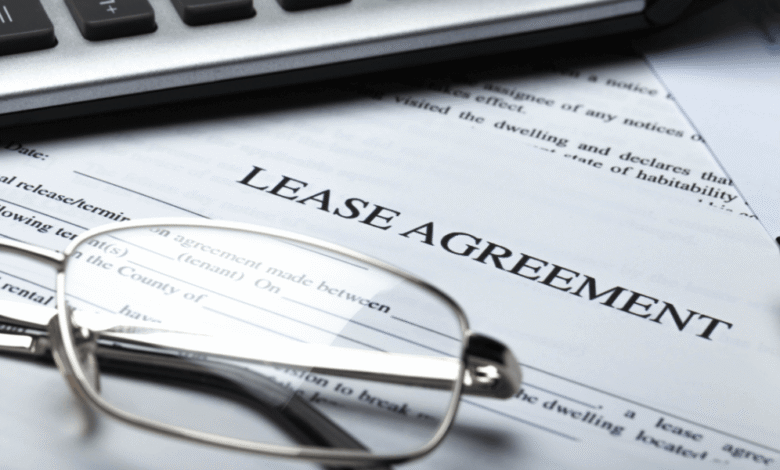Key Things to Know Before Signing a Commercial Lease in Campbelltown

Signing a commercial lease is one of the most significant commitments a business owner can make. Unlike residential agreements, commercial leases are complex documents with long-term financial implications and fewer statutory protections for tenants. This guide walks you through the essential legal and practical considerations every Campbelltown business owner should understand before signing on the dotted line, and explains how Expert commercial leasing lawyers Campbelltown can help you secure fair terms and avoid costly disputes.
What Makes a Commercial Lease Different?
Before diving into specific clauses, it’s crucial to understand that commercial leasing operates in a different legal landscape from residential tenancies.
- Longer Terms and Greater Financial Commitment: Commercial leases often span 3 to 10 years, involving a much larger financial commitment than a residential lease.
- Negotiability, Not Standardization: There is no standard commercial lease form. Landlords often have leases custom-drafted by attorneys, meaning every clause is negotiable to suit the specific needs of the landlord and tenant.
- Fewer Legal Protections: States and local municipalities often provide robust protections for residential tenants. These rarely extend to commercial tenants, who are expected to protect their own interests through negotiation.
Understanding this imbalance is the first step toward negotiating a lease that protects your business.
Critical Clauses to Scrutinize in Your Commercial Lease
A commercial lease is a complex puzzle of interconnected clauses. Pay special attention to the following areas.
Rent and Rent Review Clauses
The cost of your space isn’t always straightforward. Your lease agreement will detail not only the base rent but also how and when it can increase.
| Rent Review Type | How It Works | Key Consideration |
| Open Market Review | Rent adjusts to current market rates for similar properties. | Often “upwards only,” meaning your rent will never decrease, even if market rates fall. |
| Index-Linked Review | Rent ties to an inflation index like the Retail Price Index (RPI) or Consumer Price Index (CPI). | Ensure the formula is clear to avoid a “ratcheting effect” that inflates rent beyond intended levels. |
| Stepped Rent Review | Pre-agreed rent increases at specified intervals. | Provides predictability but may not reflect actual market conditions. |
| Turnover Rent | Rent linked to a percentage of your business’s turnover. | Common in retail; requires clarity on what constitutes “turnover.” |
Pro Tip: You can often negotiate a rent review. Start discussions early, provide market evidence to support your position, and consider offering a longer lease term in exchange for a more favourable increase.
Repair and Maintenance Obligations
In a commercial lease, the traditional landlord-tenant dynamic for repairs is often reversed.
- Tenant Responsibilities: A typical lease places most or all repair and maintenance obligations on the tenant, except for structural repairs. The definition of “structural” is narrow (e.g., foundations, roofs), meaning elements like HVAC systems, plumbing, and interior finishes are often the tenant’s responsibility.
- Standard of Care: Leases use terms like “first-class repair” or “prudent tenant.” These can be subjective, so the lease should clearly define the standards, such as referencing industry standards or maintenance frequencies.
- “Reasonable Wear and Tear”: This common exception exempts tenants from liability for components that wear out from normal use. However, if wear and tear could cause further damage, the tenant is obligated to make repairs to prevent it.
Due Diligence: Before signing, conduct a professional building survey to establish a baseline condition of the premises. Have this document signed by both parties to prevent future disputes over damage that existed prior to your tenancy.
Exit, Termination, and Flexibility Clauses
Your business needs may change, so your lease needs flexibility. Relying on a handshake agreement for an early exit is a recipe for financial loss.
- Early Termination Clause: This is the cleanest way to exit. It allows you to break the lease early by meeting pre-negotiated conditions, such as providing notice and paying a predetermined fee. Without this clause, breaking a lease can result in penalties like accelerated rent (paying the entire remaining lease balance) and forfeiture of your security deposit.
- Assignment and Subletting: This clause allows you to transfer your lease to another tenant. However, landlord approval is usually required, and you may remain liable if the new tenant defaults. Landlords cannot unreasonably withhold this consent.
- Landlord’s Material Breach: If the landlord fails to meet their obligations—such as neglecting essential repairs or violating health codes—you may have grounds to terminate the lease. Always document breaches and provide formal written notice.
Other Key Negotiation Points
- Use Clause: This defines what business activities you can conduct on the premises. Negotiate for a broad enough clause to allow for future business evolution.
- Personal Guarantee: If you are a new business, landlords may request a personal guarantee, making you personally liable if the business cannot pay rent. Try to limit or avoid this.
- Make Good Provisions: This clause obligates you to return the premises to their original condition at the end of the lease. Negotiate these terms upfront to avoid a massive, unexpected cost later.
How Expert Commercial Leasing Lawyers Campbelltown Can Protect Your Interests
Navigating a commercial lease without legal counsel is a significant risk. Expert commercial leasing lawyers Campbelltown provide indispensable services throughout the process.
- Thorough Lease Review: They will conduct a detailed review of the entire document, translating complex legal jargon into plain English and identifying onerous clauses that could harm your business down the line.
- Strategic Negotiation: An experienced lawyer will negotiate favourable terms on your behalf, whether you are a tenant or a landlord, ensuring the final agreement is balanced and protects your interests.
- Drafting and Amendment: They can draft new clauses or amend existing ones to better reflect the deal you have negotiated and to protect your rights.
- Dispute Resolution: If a disagreement arises during your tenancy, having a lawyer who understands your lease and your rights can help resolve the issue efficiently, whether through negotiation, mediation, or litigation.
Final Takeaways for Campbelltown Business Owners
Your commercial lease is the foundation of your business operations. Taking the time to understand and negotiate its terms is not just a legal formality—it is a critical business strategy.
- Never Assume: Do not assume anything is standard or non-negotiable. Every clause matters.
- Plan for the Future: Consider your business’s growth, potential downsizing, or relocation. Ensure your lease has the flexibility to accommodate change.
- Get it in Writing: A written lease is essential to avoid misunderstandings and provide legal enforceability.
- Invest in Expert Review: The cost of hiring a lawyer to review your lease is minor compared to the potential cost of being trapped in a bad agreement. It is one of the best investments you can make for your business’s future.
Before you commit to a space that will house your dreams and ambitions, seek professional guidance. Contacting Expert commercial leasing lawyers Campbelltown ensures your venture begins on solid legal ground, with terms that support rather than hinder your business growth.





